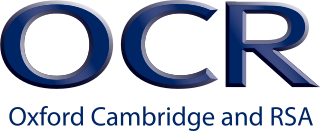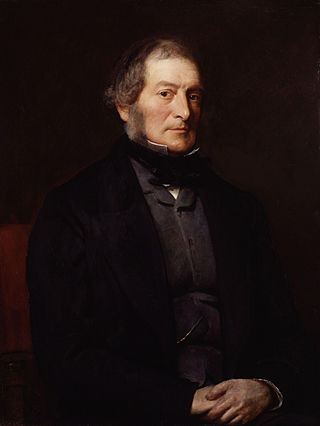
The General Certificate of Secondary Education (GCSE) is an academic qualification in a range of particular subjects, taken in England, Wales, and Northern Ireland, having been introduced in September 1986, and its first exams sat in 1988. State schools in Scotland use the Scottish Qualifications Certificate instead. However, private schools in Scotland often choose to follow the GCSE system in England.
The Institute of Physics (IOP) is a UK-based learned society and professional body that works to advance physics education, research and application.
Coursework is work performed by students or trainees for the purpose of learning. Coursework may be specified and assigned by teachers, or by learning guides in self-taught courses. Coursework can encompass a wide range of activities, including practice, experimentation, research, and writing. In the case of students at universities, high schools and middle schools, coursework is often graded and the scores are combined with those of separately assessed exams to determine overall course scores. In contrast to exams, students may be allotted several days or weeks to complete coursework, and are often allowed to use text books, notes, and the Internet for research.
In the Scottish secondary education system, the Higher is one of the national school-leaving certificate exams and university entrance qualifications of the Scottish Qualifications Certificate (SQC) offered by the Scottish Qualifications Authority. It superseded the old Higher Grade on the Scottish Certificate of Education (SCE). Both are normally referred to simply as "Highers".

AQA Education, trading as AQA, is an awarding body in England, Wales and Northern Ireland. It compiles specifications and holds examinations in various subjects at GCSE, AS and A Level and offers vocational qualifications. AQA is a registered charity and independent of the government. However, its qualifications and exam syllabi are regulated by the Government of the United Kingdom, which is the regulator for the public examinations system in England and Wales.
The Advanced Extension Awards are a type of school-leaving qualification in England, Wales and Northern Ireland, usually taken in the final year of schooling, and designed to allow students to "demonstrate their knowledge, understanding and skills to the full". Currently, it is only available for Mathematics and offered by the exam board Edexcel.
The Sixth Term Examination Papers in Mathematics, often referred to as STEP, is currently an university admissions test for undergraduate courses with significant mathematical content - most notably for Mathematics at the University of Cambridge. Starting from 2024, STEP will be administered by OCR, replacing CAAT who was responsible for administering STEP in previous years.

Oxford, Cambridge and RSA Examinations (OCR) is an examination board that sets examinations and awards qualifications. It is one of England, Wales and Northern Ireland's five main examination boards.
The International Baccalaureate Diploma Programme (IBDP) is a two-year educational programme primarily aimed at 16-to-19-year-olds in 140 countries around the world. The programme provides an internationally accepted qualification for entry into higher education and is recognized by many universities worldwide. It was developed in the early-to-mid-1960s in Geneva, Switzerland, by a group of international educators. After a six-year pilot programme that ended in 1975, a bilingual diploma was established.
Physics education or physics teaching refers to the education methods currently used to teach physics. The occupation is called physics educator or physics teacher. Physics education research refers to an area of pedagogical research that seeks to improve those methods. Historically, physics has been taught at the high school and college level primarily by the lecture method together with laboratory exercises aimed at verifying concepts taught in the lectures. These concepts are better understood when lectures are accompanied with demonstration, hand-on experiments, and questions that require students to ponder what will happen in an experiment and why. Students who participate in active learning for example with hands-on experiments learn through self-discovery. By trial and error they learn to change their preconceptions about phenomena in physics and discover the underlying concepts. Physics education is part of the broader area of science education.
Curriculum 2000 was a reform of A Level examinations in the United Kingdom. It was introduced in September 2000. An A Level under this reform consists of four or six units studied over two years. Normally, two or three units are assessed at the end of the first year, and make up a stand-alone Advanced Subsidiary qualification. Another two or three modules are assessed at the end of the second year, which make up the A2 Level. A2 units do not form a qualification in their own right; the satisfactory completion of the AS and A2 units in the same subject is required to constitute a complete A Level qualification.
The Singapore-Cambridge General Certificate of Education Ordinary Level is a GCE Ordinary Level examination held annually in Singapore and is jointly conducted by the Ministry of Education (MOE), Singapore Examinations and Assessment Board (SEAB) and the University of Cambridge Local Examinations Syndicate (UCLES). Students are graded in the bands ranging from A to F and each band has a respective grade point, a lower grade point indicates better performance. The number at the end of each grade corresponds to the grade point that they receive. To pass an individual O-Level subject, a student must score at least C6 or above. The highest grade a student can attain is A1.
DELTA is an English language teaching (ELT) qualification for experienced Teachers of English as a Foreign Language (TEFL) and Teachers of English to Speakers of Other Languages (TESOL). It is provided by Cambridge English Language Assessment through authorised Cambridge English Teaching Qualification centres and can be taken either full-time or part-time. The full name of the course was originally the Diploma in English Language Teaching to Adults and is still referred to in this way by some course providers. However, in 2011 the qualification title was amended on the Ofqual register to the Cambridge English Level 7 Diploma In Teaching English to Speakers of Other Languages (DELTA) in order to reflect that the wider range of students that teachers might have, including younger learners.
A Uniform Mark Scale, or UMS, is a way of standardising the marking of papers across different examination boards, allowing someone to compare two marks marked by two different examination boards. Grades are then calculated using grade boundaries set at particular UMS scores.
The University Foundation Programme (UFP) is a one-year intensive course that leads to entry to a wide range of universities in the United Kingdom. It is designed as an alternative to the conventional A-Level route, which takes two years to complete.

The A-level is a subject-based qualification conferred as part of the General Certificate of Education, as well as a school leaving qualification offered by the educational bodies in the United Kingdom and the educational authorities of British Crown dependencies to students completing secondary or pre-university education. They were introduced in England and Wales in 1951 to replace the Higher School Certificate. The A-level permits students to have potential access to a chosen university they applied to with UCAS points. They could be accepted into it should they meet the requirements of the university.
Advanced Level (A-Level) Mathematics is a qualification of further education taken in the United Kingdom. In the UK, A-Level exams are traditionally taken by 17-18 year-olds after a two-year course at a sixth form or college. Advanced Level Further Mathematics is often taken by students who wish to study a mathematics-based degree at university, or related degree courses such as physics or computer science.
The General Certificate of Education (GCE) Advanced Level, or A Level, is a main school leaving qualification in England, Wales, Northern Ireland, the Channel Islands and the Isle of Man. It is available as an alternative qualification in other countries.
Qualified specialist dyslexia teachers are teachers in the United Kingdom with specialist SpLD (dyslexia) qualifications who are recognised by the Department for Children, Schools and Families as being able to assess and diagnose dyslexia. This was recently confirmed by the Government’s research report on the teaching of children with dyslexia in schools in the UK. The National Health Service also advises assessment by a specialist dyslexia teacher for a diagnosis.

Science education in England is generally regulated at all levels for assessments that are England's, from 'primary' to 'tertiary' (university). Below university level, science education is the responsibility of three bodies: the Department for Education, Ofqual and the QAA, but at university level, science education is regulated by various professional bodies, and the Bologna Process via the QAA. The QAA also regulates science education for some qualifications that are not university degrees via various qualification boards, but not content for GCSEs, and GCE AS and A levels. Ofqual on the other hand regulates science education for GCSEs and AS/A levels, as well as all other qualifications, except those covered by the QAA, also via qualification boards.




